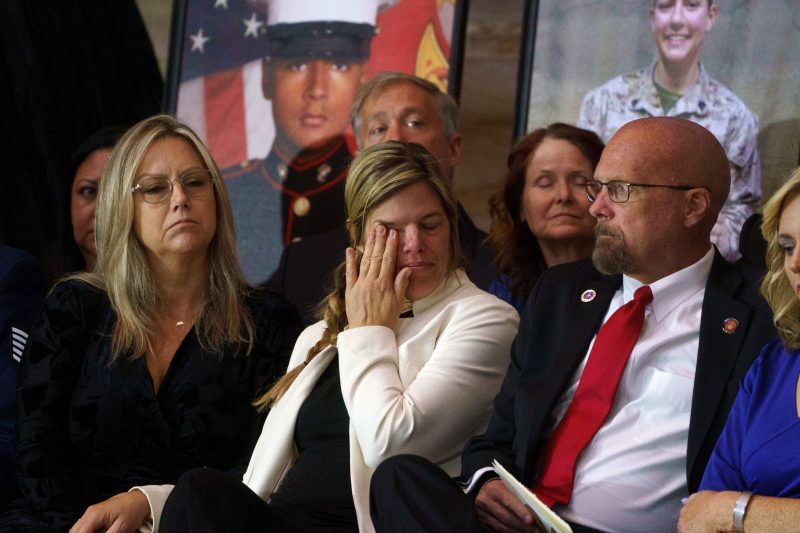The military families who have lost loved ones in service to their country often find themselves in a profoundly challenging position as they navigate grief and loss while contending with the political landscape and public attention. In recent years, a growing number of grieving military families have become increasingly vocal and politically active, with many aligning themselves in support of former President Donald Trump and the Republican Party. This shift in political allegiance has been supported and facilitated by GOP operatives who play a strategic role in amplifying the voices and experiences of these families.
The families of fallen service members form a powerful and emotionally resonant constituency that, when mobilized, can carry significant weight in the political arena. Their heartbreaking stories and their unshakeable commitment to honoring their loved ones’ sacrifice make them compelling figures who are able to leverage their personal experiences to advocate for specific policy agendas and candidates. Following the emergence of Donald Trump as a political figure, many of these families found in him a champion who promised to prioritize the needs and concerns of the military and veterans, cementing their support for his administration and the GOP.
One key aspect of this transformation is the role played by GOP operatives and political strategists who have seized upon the opportunity presented by these grieving military families to advance their political objectives. By providing resources, assistance, and guidance, these operatives help these families to share their stories and perspectives in a way that aligns with conservative values and messaging. Through media appearances, advocacy campaigns, and participation in political events, these families are able to amplify their voices and influence public opinion, particularly within the Republican base.
This partnership between grieving military families and GOP operatives has significant implications for the political landscape, as it underscores the ways in which personal tragedy and political advocacy can intersect and shape public discourse. By harnessing the emotional resonance of these families’ experiences, political operatives are able to channel their grief and anger into support for specific policies and candidates, leveraging their stories as powerful symbols of sacrifice and patriotism. At the same time, these families find in the GOP a platform through which to express their views and seek validation for their beliefs, creating a symbiotic relationship that benefits both parties.
However, this alliance between grieving military families and the GOP is not without its controversies and challenges. Critics argue that the instrumentalization of these families’ stories for political gain can be exploitative and insensitive, reducing their complex experiences to partisan talking points. Moreover, the alignment of these families with a specific political ideology can lead to divisions within the broader military community, where political allegiances are diverse and often fraught with tensions.
As the political landscape continues to evolve, the role of grieving military families in shaping public opinion and policy debates is likely to remain significant. By partnering with GOP operatives and strategically leveraging their experiences, these families are able to assert their influence and advocate for causes that are close to their hearts. While this alliance may be a source of controversy and debate, it underscores the ways in which personal trauma and political activism can intersect in powerful and unexpected ways, transforming individual grief into a potent force for change and mobilization in the political sphere.

